Two different positions of the same dice are shown, the six faces of which are numbered from 1 to 6. Select the number that will be on the opposite to the face showing ‘5’?
एक ही पासे की दो अलग-अलग अवस्थाएँ दी गयी हैं, जिनकी छः फलकों को 1 से 6 तक संख्यांकित किया गया है। उस संख्या का चयन कीजिए जो फलक 5 पर मौजूद संख्या के विपरीत आएगी?
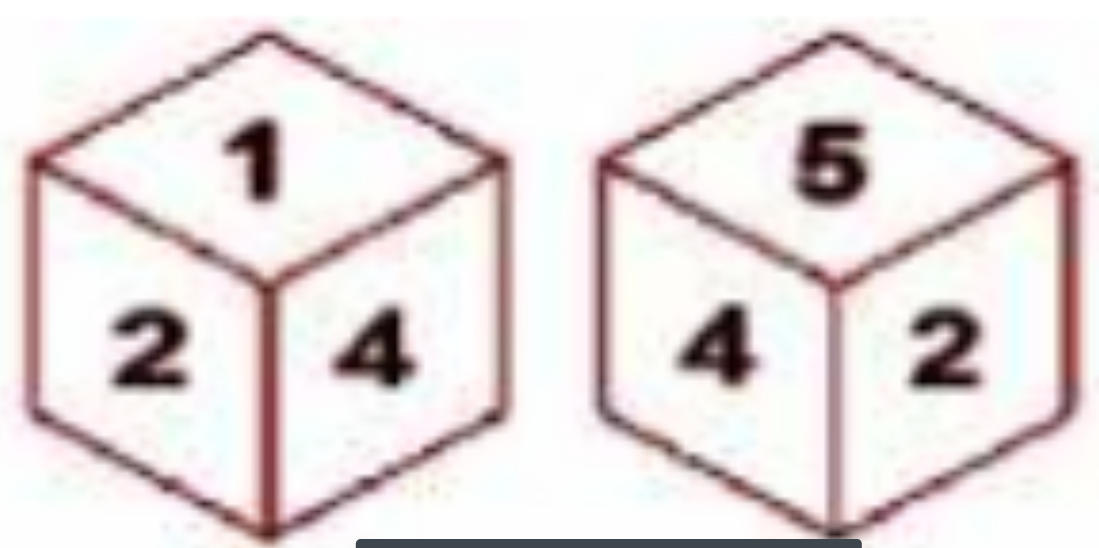
3
1
6
4
Step by step video & image solution for Two different positions of the same dice are shown, the six faces of which are numbered from 1 to 6. Select the number that will be on the opposite to the face showing ‘5’? एक ही पासे की दो अलग-अलग अवस्थाएँ दी गयी हैं, जिनकी छः फलकों को 1 से 6 तक संख्यांकित किया गया है। उस संख्या का चयन कीजिए जो फलक 5 पर मौजूद संख्या के विपरीत आएगी? by Reasoning experts to help you in doubts & scoring excellent marks in Class 14 exams.
Updated on:21/07/2023Topper's Solved these Questions
Similar Questions
Two different positions of the same dice are shown, the six faces of which are numbered from 1 to 6. Select the number that will be on the face opposite to the face opposite to the one having ‘5’.
एक ही पासे की दो अलग-अलग अवस्थाएँ नीचे दी गयी हैं| इस पासे की छः फलकों पर 1 से 6 तक संख्याएँ हैं | उस संख्या का चयन कीजिए जो “5' को दर्शाने वाली फलक के विपरीत फलक पर होगी ?-14.png)
View SolutionTwo different positions of the same dice are shown, the six faces of which are numbered from 1 to 6. Select the number that will be on the opposite to the face showing ‘1’.
एक ही पासा के दो अलग-अलग स्थान दिखाए गए हैं, जिनमें से छह चेहरों की संख्या 1 से लेकर 6 तक है। उस संख्या का चयन करें जो '1' के विपरीत होगी।
View Solution
Knowledge Check
Two different positions of the same dice are shown, the six faces of which are numbered from 1 to 6. Select the number that will be on the face opposite to the face showing 5.
 A4B3C6D1
A4B3C6D1Two different positions of the same dice are shown, the six faces of which are numbered from 1 to 6. Select the number that will be on the face opposite to the one having ‘5’
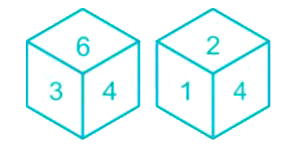 A2B3C4D6
A2B3C4D6Two different positions of the same dice are shown ,the six faces which are numbered from 1 to 6 . Select the number that will be on the face opposite to the face showing 3.
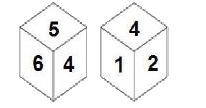 A(A). 2B(B). 5C(C). 1D(D). 4
A(A). 2B(B). 5C(C). 1D(D). 4
Two different positions of the same dice are shown, the six faces of which are numbered 1 to 6. Select the number that will be on the face opposite to the face showing ‘3’.
एक ही पासा के दो अलग-अलग स्थान दिखाए गए हैं, जिनमें से छह चेहरों की संख्या 1 से लेकर 6 तक है। उस संख्या का चयन करें जो '3' के विपरीत होगी।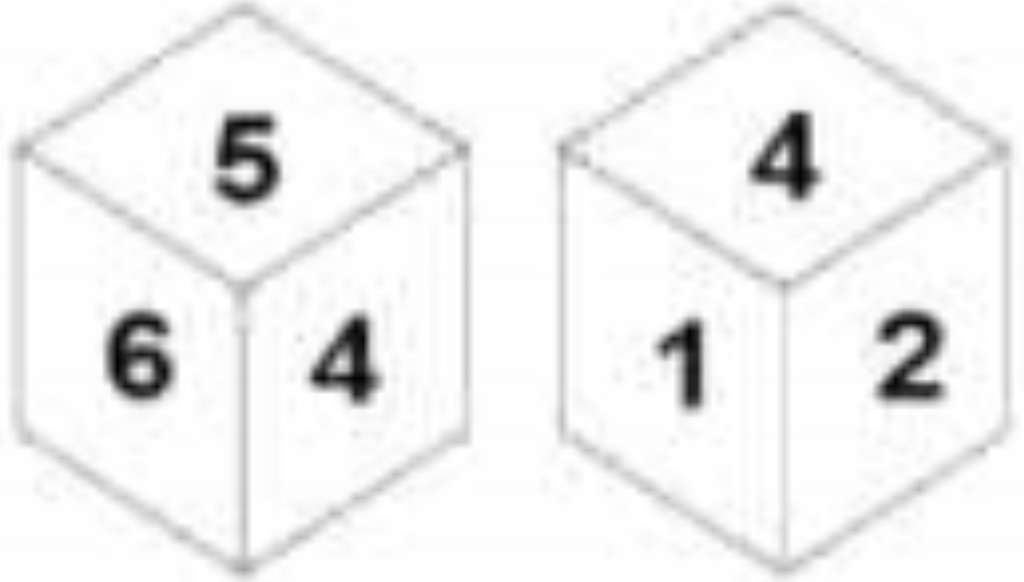
View SolutionThree different positions of the same dice are shown, the six faces of which are numbered from 1 to 6. Select the number that will be on the face opposite to the face showing '1'.
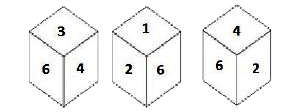
View SolutionThere different positions of the same dice are shown, the six faces of which are numbered from 1 to 6 Select the number that will be on the face opposite to the one showing '6'
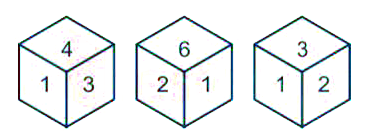
View SolutionThree different positions of the same dice are shown, the six faces of which are numbered 1 to 6. Which number is on the face opposite the face showing’ 1’?

View SolutionTwo different positions of the same dice are shown below, the six faces of which are numbered 1 to 6. Find the number on the face opposite to the one having ‘5’.
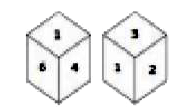
View Solution
